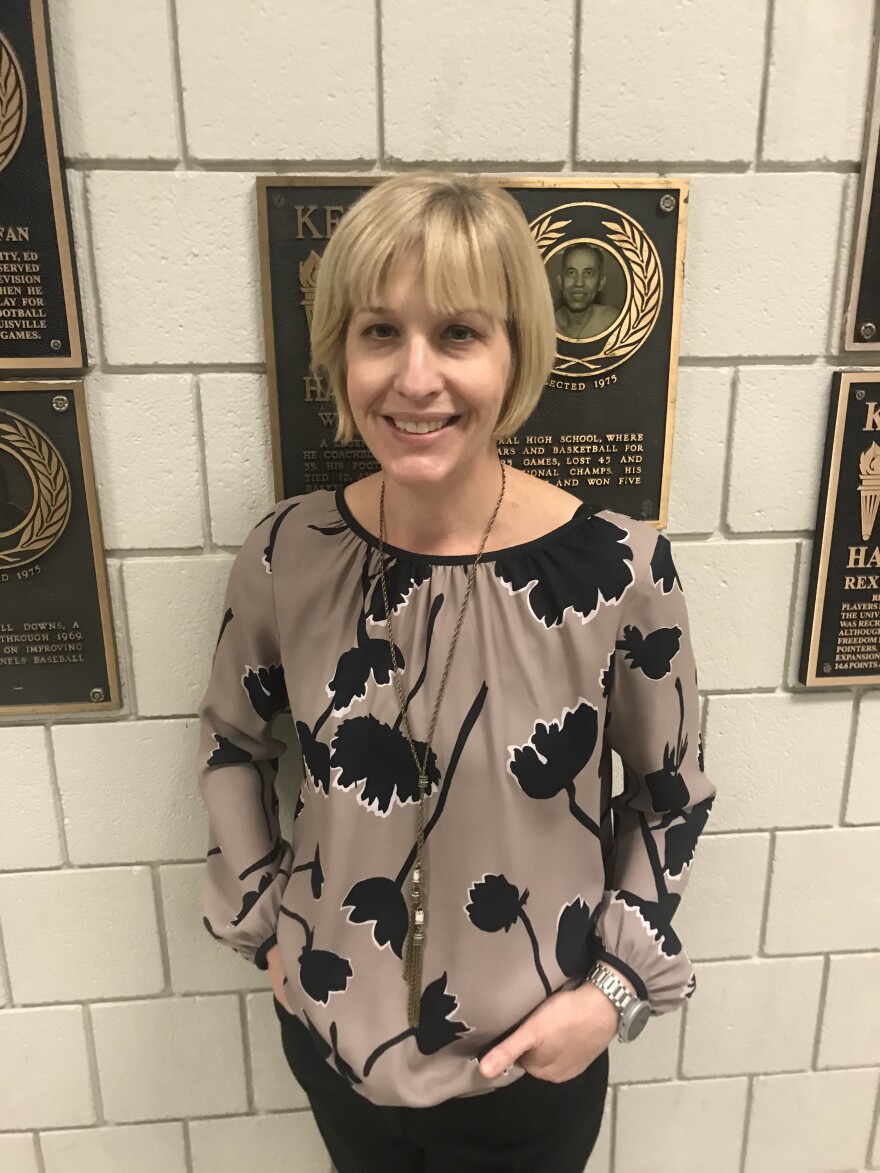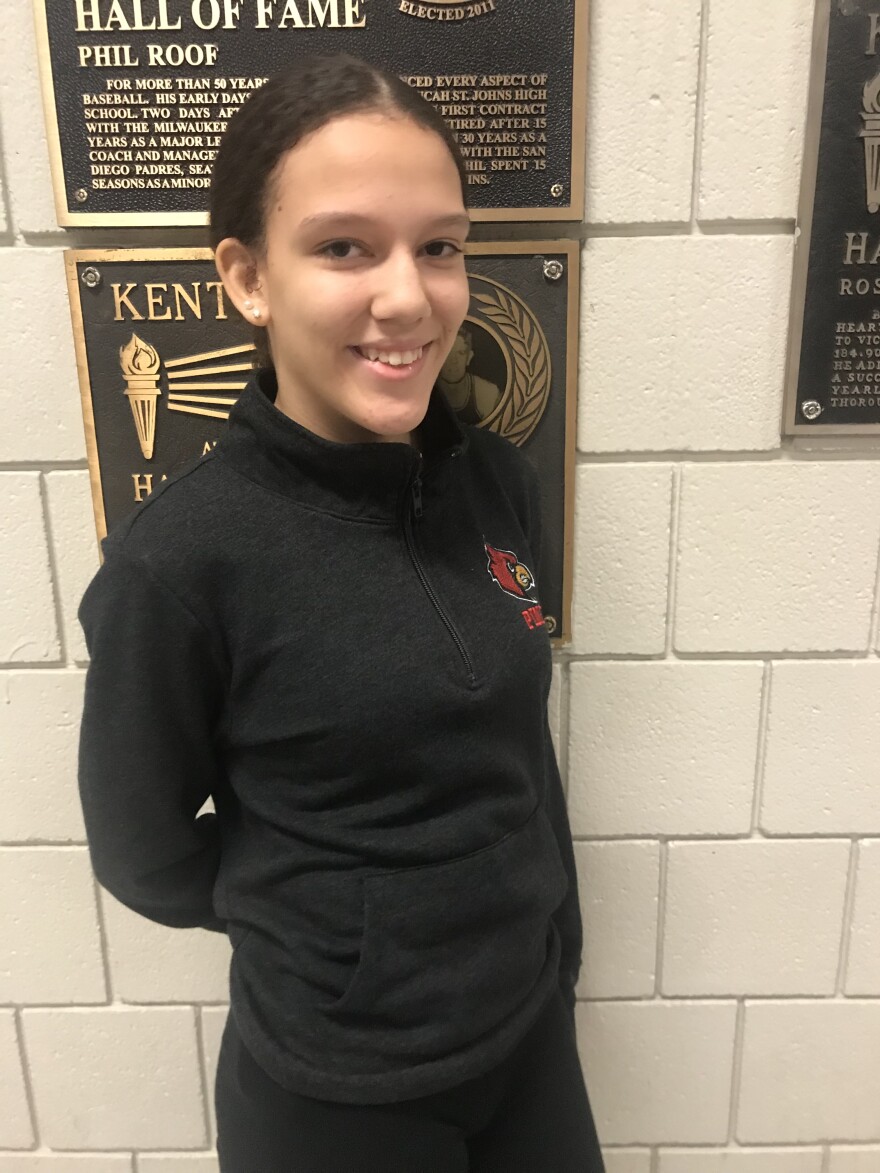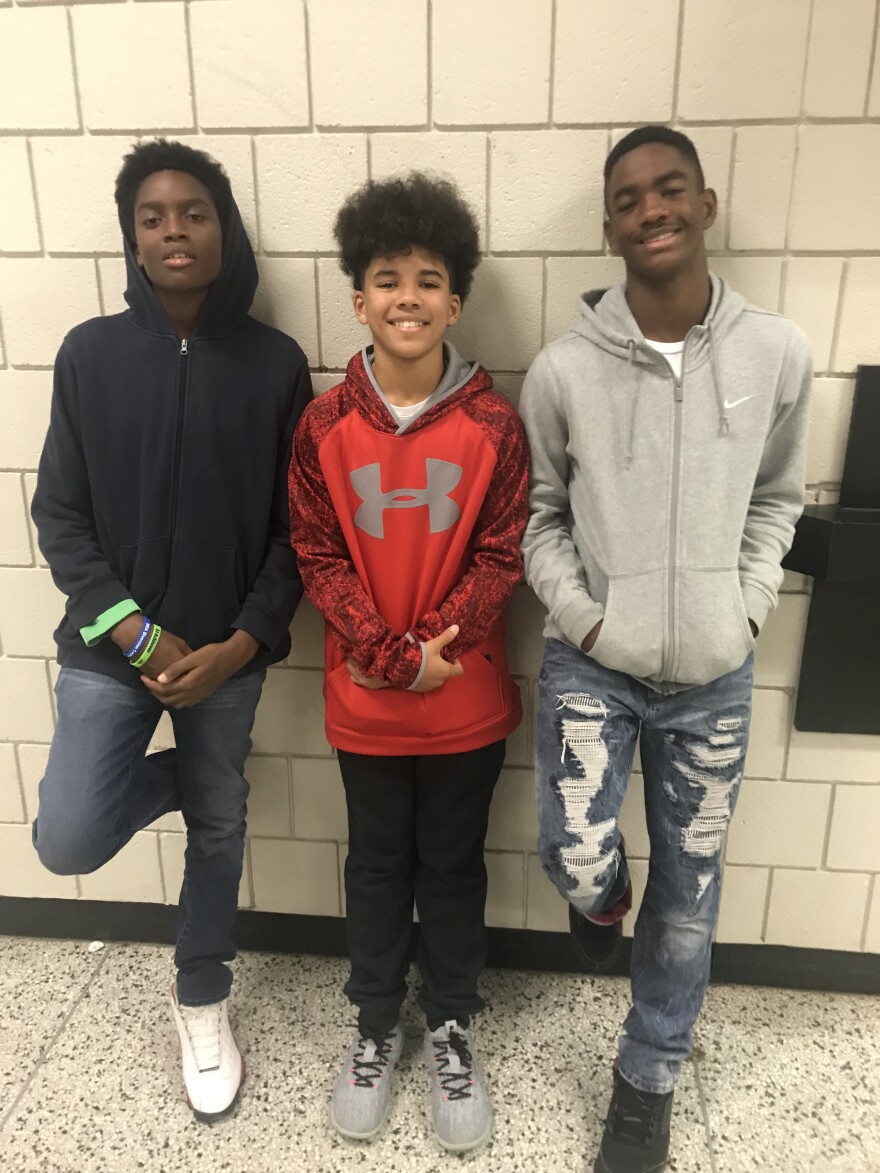Drug overdose deaths in Kentucky have been rising steadily since 2013, and this makes the task of reaching young people even more urgent for health and community advocates.
That’s why on Tuesday, Jefferson County Public Schools, the federal Drug Enforcement Administration and the Mark Wahlberg Youth Foundation held a city-wide summit on opioids for 8th and 9th graders. It wasn’t quite the traditional “don’t do drugs” talk; instead, it featured a capella group Linkin’ Bridge and lots of personal stories from people — including members of Linkin’ Bridge — about drug use, and how it affected their lives.
The message seemed to have sunk in for some, like 8th grader Avyon Douglas, who goes to Johnson Middle School.
“I learned a lot, that drugs [are] really killing people and that we should try to spread the world and tell people to not do drugs,” she said.
Torri Martin is a math teacher at The Brown School; she said drug prevention and education doesn’t get as much classroom time in schools as it used to.
“When I was younger it was a conversation that we had a lot and I think that being ‘drug free,’ we haven’t felt the need to talk about it with our students as much,” Martin said. “Opioids are a completely different and much scarier addiction than the drugs when I was younger.”
Other students said hearing directly from families affected by the opioid crisis meant more than classroom learning.
“Obviously we have people constantly telling us to not do drugs, but it’s cool to see people...who’ve experienced family members dying from it, and hearing their stories, it actually had a bigger meaning to it,” said Trinity Wooten, a 9th grader at The Brown School. “It made us feel more like, this is a serious topic - this is actually affecting people and kids.”
Other students — like Malachi Price — said they already knew about the opioid crisis, and knew someone who’d struggled with addiction. Price is an eighth grader at Knight Middle School, and said his older brother’s friend overdosed while driving a car.
“He overdosed in the car and almost got into a wreck,” Price said.
For Price, the speaker that really got through was University of Louisville Men’s Basketball Coach Chris Mack. Mack told the students that successful athletes don’t get to where they are by using drugs.
“He talked to people about how they got successful and they never brought up drugs,” Price said.
Price and his friend Taylen Carver said they’re both athletes and want to play professionally eventually. They know: using drugs could put that future in jeopardy.
But Price said the success of Tuesday’s summit is ultimately up to the students attending and the decisions they make later on: who they hang out with, if they start using drugs or not, and if they get help if they need it.
“We just got to see what happens in the future, see if it actually works,” Price said.
Emily Walden is hopeful about that future. She’s a Kentucky mother who’s become a nationwide advocate against opioids after her son, T.J., died from an opioid overdose. Walden wants to see policy changes to help fight addiction. But she says part of the solution is right here, sharing stories like these.
“They have given us hope today that each one of you attending can leave here and have an understanding and compassion for those affected by addiction,” Walden said. “That you will share the stories that you’ve heard and know what resources are available to help someone struggling.”





